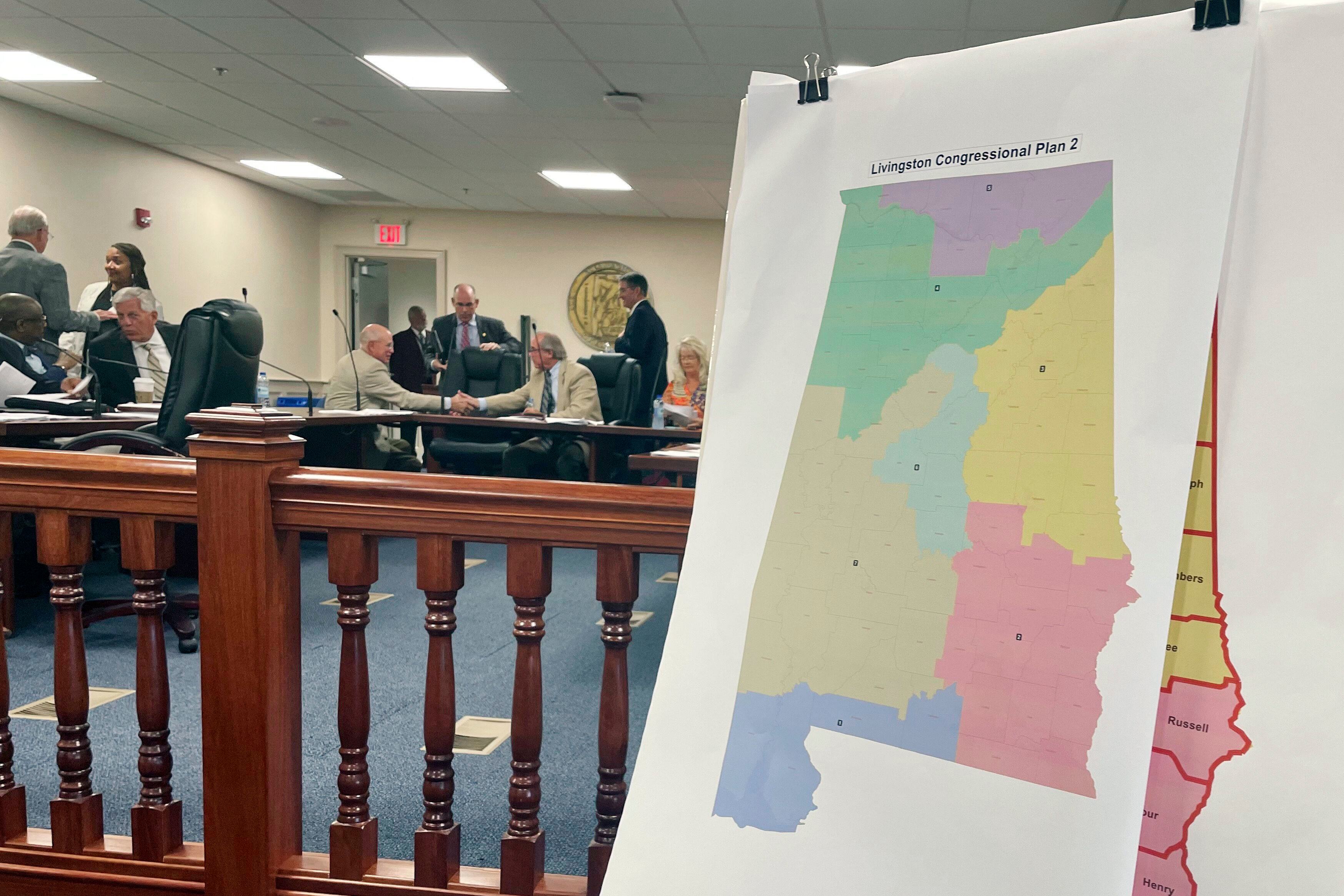A federal court has ruled that Alabama may not use the recently drawn congressional map in the 2024 election and has assigned a special master and cartographer to draw a new map while the inevitable appeals from Attorney General Steve Marshall play out.
In June, the U.S. Supreme Court upheld with a 5-4 vote a lower court's decision to require the Alabama Legislature to redraw their congressional districts passed in 2021 to include a second majority-black congressional district or a district with a high enough black voting age population where a minority representative could possibly be elected.
The original suit against the 2021 map asserted a racial gerrymandering claim under the Equal Protection Clause of the 14th Amendment and an intentional discrimination claim under the 14th and 15th Amendments.
The legislature passed a new map during a special session in July.
Under the new map, the seventh congressional district would have a 51% black voting-age population. The second congressional district would lose Autauga County, Conecuh County and parts of Elmore and Covington Counties while adding Lowndes, Macon and Russell Counties. The black voting-age population in the district would increase from 32% to approximately 40%.
A three-judge panel heard arguments in August after advocacy groups and Democratic lawmakers challenged the new map. On Tuesday, the court ruled in favor of the plaintiffs, blocking the new map from being allowed to go into effect during the 2024 election cycle.
The court also appointed a special master and cartographer to begin working on a remedial map. A separate court order will give specific instructions for the new map. The court did not allow a provision to allow the legislature to draw another map, saying, “We have no reason to believe that allowing the Legislature still another opportunity to draw yet another map will yield a map that includes an additional opportunity district.”
“We have reached these conclusions only after conducting an exhaustive analysis of an extensive record under well-developed legal standards, as Supreme Court precedent instructs,” the court wrote in its opinion. “We do not take lightly federal intrusion into a process ordinarily reserved for the State Legislature. But we have now said twice that this Voting Rights Act case is not close. And we are deeply troubled that the State enacted a map that the State readily admits does not provide the remedy we said federal law requires.”
Marshall has yet to comment on the decision. However, his office will likely file an appeal.
To connect with the author of this story or to comment, email craig.monger@1819news.com.
Don't miss out! Subscribe to our newsletter and get our top stories every weekday morning










